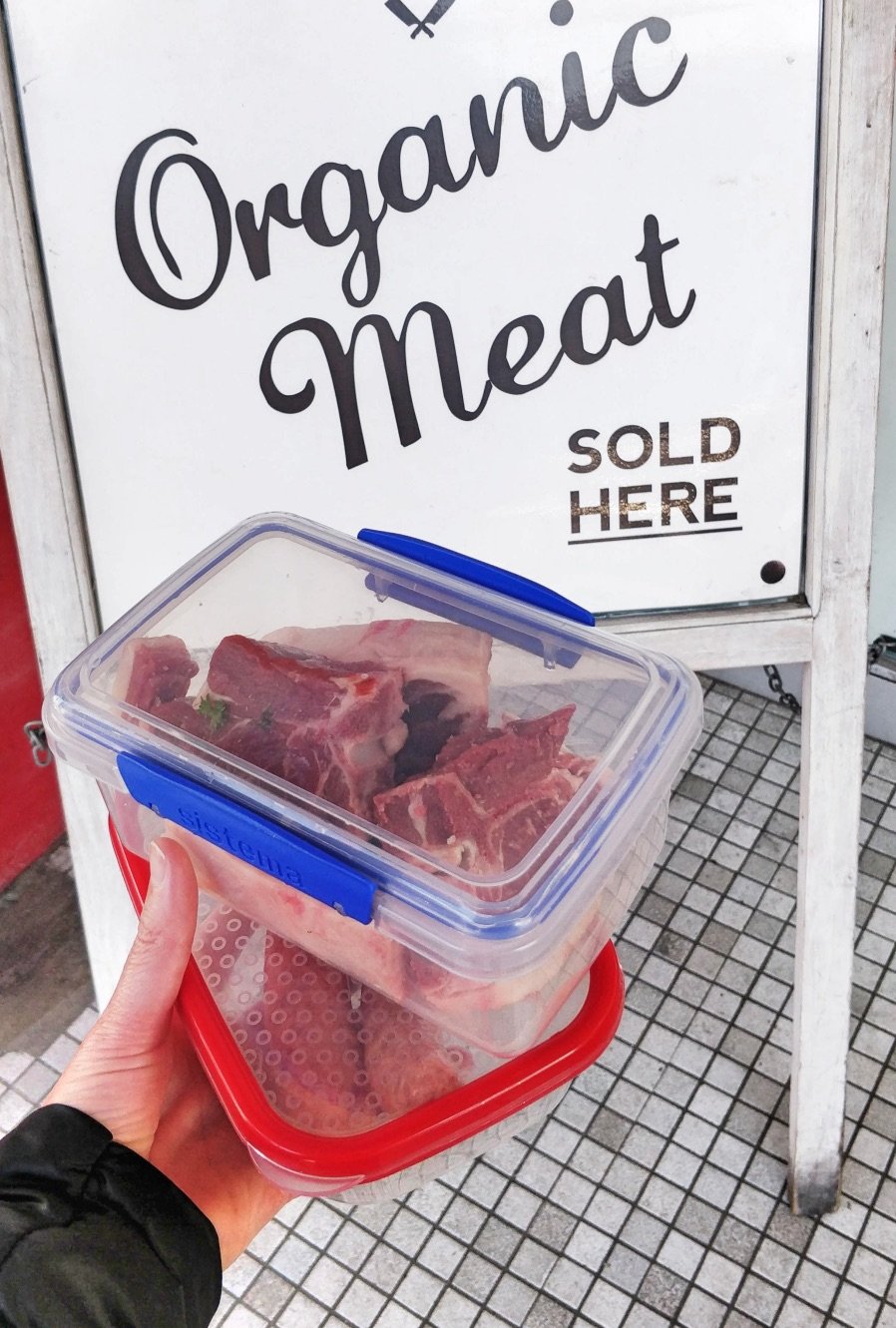Bringing & Using Your Own Container at Food Stores: The Facts
What are the laws that govern whether you can BYO and use your own reusable container at supermarkets, delis, butchers, and other food stores? Is it against health regulations? Is it up to the individual vendor? We investigate!
Knowing the facts about using your own container to take home cheese, meat, olives, fish and other food items empowers you to be confident about asking for your purchases to be placed in the containers you’ve brought with you and enables you to educate shop owners, managers and staff about their liability if they’re unsure whether it is something they can do or should be doing.
We look at the main issue, which is food safety, and uncover who is liable for any issues that occur and which laws govern the use of containers from home in Victoria, Australia. These laws change from state to state in Australia and are obviously different in different countries, so if you’re not in the Education State, you’ll need to do your own research into the regulations governing this in your state or country.
The food safety issue
The main problem with using a container that could have come from anywhere is food safety. No one wants food poisoning and no company or store wants to be accused of causing food poisoning.
The fact that it is unhygienic and against food safety and health regulations is the main reason given by supermarkets and food stores for saying no to people who have brought in their own containers for use.
So, is it unhygienic or against Victorian health regulations?
In short, no. Using your own container is not unhygienic if washed properly by yourself and it is not against health regulations.
BYO Containers notes that “currently there is no provision under the Victorian Food Act 1984 (Act), the Code or the Primesafe or Dairy Food Safety Victoria Regulations (Regulations) which expressly prohibits stores from accepting reusable customer containers”.
Gippsland Unwrapped has also confirmed this with the Department of Health and Human Services.
From its enquiries, BYO Containers has found that “whether or not a business accepts customer containers is ultimately an individual management decision”. It advises businesses to “check and update their food safety program and risk assessment to accommodate the BYO containers practise”.
However, the rules are slightly different when it comes to market stalls. They “may be required to package produce (such as meat) before transport to market”, according to BYO Containers.
BYO Containers has a factsheet that you can download and share with businesses in your area that want to learn more about people bringing their own containers for their produce. You can download it here.
What containers can’t be used?
Single-use takeaway containers cannot be reused by law as they are classed as single use and are not easily cleaned and sanitised. Their reuse is prohibited by the Food Standards Australia New Zealand (FSANZ) Code.
In addition, dirty containers, wet containers and containers that don’t have a lid or are damaged can be refused.
Also make sure your container is the right size and shape for whatever you want to be placed in it. You want to make it easy for them to use it, not harder.
Do servers have to use gloves?
According to Gippsland Unwrapped, there is no law requiring disposable gloves be worn, or that they have to be disposed of after each serving. If possible, ask servers to use tongs or other utensils instead, or if you don’t mind, tell them they can just use their hands, which they probably clean regularly due to the work environment they work in.
How to clean your containers properly
To ensure there is no issue from their side, consumer can ensure that their container - be it a plastic Tupperware container, a glass tub or a stainless steel tiffin - is clean and dry and that it looks clean.
Although you can sterilise containers in the home environment using high heat and microwaves or the oven (Google will show you how!), they can be disinfected properly by using soap and hot water to clean while using a good, strong mechanical action, or by putting them through the dishwasher if they are dishwasher friendly.
Storing containers with the lid on is recommended to keep them clean until they are used.
BYO Containers also has a factsheet for consumers with all the information you need to know when using your own containers and tips for approaching a new business. You can download it here.
If you have any more questions about using your own container in Victoria, Australia contact BYO Containers, who will be more than happy to help, here or leave a comment below and we’ll try to find out the answer for you.
*we maintain this site in our free time and support in any way, shape or form means a lot and helps us keep it running, whether it is using an affiliate link when investing in something, sharing our content, or buying us a coffee on Ko-fi.



